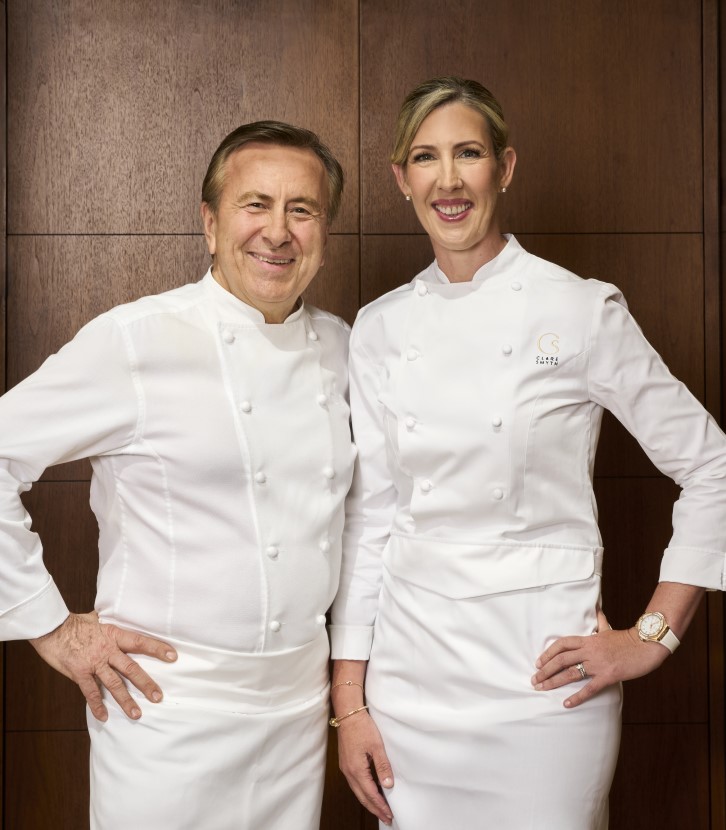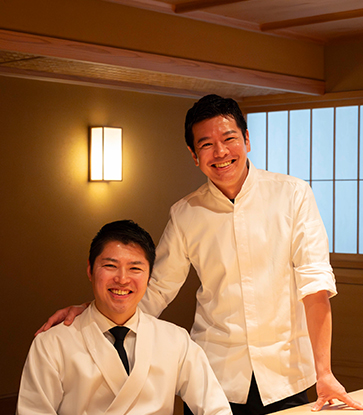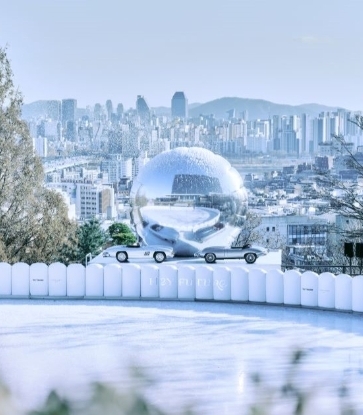By definition a megacity, Mexico City is indeed quite dense, with culture spilling into the streets and its history literally layered era upon era. Like a mural by one of its favorite sons, Diego Rivera, the contrasts crowd together: sprawling parks sit side-by-side with traffic and ancient ruins are near Hermès. Here, Michelin Stars are awarded for simply excellent tacos in a space with no seats as well as for tasting menus steeped in tradition. Amid a recent tourism boom, the eyes of the world are fixed on Mexico City, and the city is smiling back, asking to be explored.
To make the city more manageable, follow along for 48 hours with the best dining and hotels from The Michelin Guide.
Day 1
Breakfast: Conchas
Among the spread of Mexican breakfast pastries, the concha stands out for its ubiquity and, too often, its mediocrity. Tomasa, a café with locations in the Condesa and Polanco neighborhoods, is the exception, with a devotion for the sweet bread so deep that it’s manifest in its layout. Sold from behind curving counters tiled in pastel hues, the conchas, so-named for their ridged seashell patterning, are warm and soft, with a brioche-style bun close to chewy. The flavored crust on top – you choose from options like Café de Olla and Dulce de Leche – is perfectly crumbly.

Morning: The city’s most important park and museum
Chapultepec Park, once a retreat for ancient Aztec rulers, is today known as the lungs of the chockablock city, with paths threading meadows and around lakes long home to great herons, and more recently, duck boats. On weekends especially, the main loop of the park’s first section is ideal for people watching, with swarms of families and vendors hawking typical snacks, like potato chips squirted with a runny red salsa and lime, and toys. (A pipe-cleaner monkey that’s worn as a hat is a cheeky best-seller.)
The National Anthropology Museum, on the northern edge of the first section, holds some of the most significant relics of Mesoamerican civilization alongside transportive bilingual captions and images. The collection, grouped by pre-Hispanic culture, is worthy of days of scrutiny, but its can’t-miss pieces include the Aztec sun stone, the massive carved disk that’s often mistaken for a calendar, and the colossal heads of the coastal Olmecs, with their distinctive broad noses and plaintive eyes.
Staying in Polanco: The neighborhood that hosts the renowned museum is also among the poshest in the city — with no shortage of accommodations that match the reputation. We'll point you towards eight Polanco hotels selected by the MICHELIN Guide. Among them is Casa Polanco, an intimate boutique in a Forties Neocolonial mansion in a lovely residential location just across the road from another gorgeous park.

Lunch: Taco tour
There are so many taquerías in Mexico City that, by one estimate, virtually every resident of the giant capital lives within five minutes of one. But not all tacos are created equal. Michelin Inspectors investigated and put their stamp of approval on a dozen of the finest spots across the city, including Taquería El Califa de León, the first taquería to earn a Michelin Star.
This taco tour, over three adjacent neighborhoods, incorporates about twenty minutes of walking between each stop: ample time to digest and work up more of an appetite.
Start at Taquería Los Parados, a no-frills and no-tables establishment in the less gentrified Roma Sur known for charcoal-grilled meats. Michelin Inspectors recommend three classics: the bistec, with “subtle smokiness;” the “razor-thin” costilla; and the al pastor, sliced hot off a spit topped with pineapple, onions, cilantro, and salsa.
Next, head to Bib Gourmand Tacos Los Alexis from Alexis Ayala in Roma Norte. Located next door to his more upscale Pargot (also a Bib Gourmand), the tacos here are elevated with cheffy touches like caramelized onions. Michelin Inspectors noted the “elegant preparation” of the vegetarian taco with huitlacoche, an earthy corn fungus, “wrapped in crisped cheese.”
For the final stop, swing west towards the tacos guisados at Tacos Hola El Güero, a mainstay since 1968 on a quiet streetcorner in Condesa where stacked ceramic pots hold the day’s selections: guisos, or stews, that are served up in tortillas. This hearty workaday type of taco is meant to mimic a home-cooked lunch on the go. Our Inspectors recommend the picadillo, made from “well-seasoned ground meat,” and the chorizo con papa.

Afternoon: Shopping in Condesa
The central neighborhood of Condesa is meant to be strolled, with leafy loops and boulevards built with wide pedestrian medians. The stores here are a reflection of its residents, a design-minded sort, offbeat but refined, with an ample assortment of earth-toned linen clothes. For stylish clayware and other richly textured home goods, we recommend Proyecto Rufina. The art gallery Mooni is filled edge-to-edge with “ultra-contemporary” works by young, mostly Latin American artists. And Fonart Condesa, which is run by the Mexican Ministry of Culture, has artisan-made, museum-quality handicrafts at a fair price.

Evening: Dinner and a night out
Get dressed up for an evening in the city’s most well-heeled zone, Polanco, where Pujol, the Two Michelin Star landmark, opened its doors in 2000. Chef-owner Enrique Olvera is recognized for forging a fine dining movement out of his country’s cooking, turning staple dishes like mole, into, as Michelin Inspectors write, “an effort like no other that celebrates Mexican history and cuisine in the most profound way.” Olvera’s origins in the industry as a teenage dinner party host shine through in the welcoming dining room built from a mid-century home with a lush wraparound courtyard. “Tradition and invention go hand-in-hand” on the seasonal tasting menu, which leans lighter with plates like grilled Baja coast rockfish with butternut squash puree and sherry foam.
If you’ve saved room for a nightcap, join locals at a cantina, the quintessential Mexican watering hole. Once a concept most associated with machismo, the greatest ones in the city have evolved with the times while maintaining a patrician esteem. Salón Ríos, near the Angel of Independence monument, is glamorous, with a playlist in Latin meter. At Covadonga, there’s no music, just overly bright lights and many of Roma Norte’s coolest chattering to a loud buzz. Sip a tequila bandera style: paired with shot glasses of lime juice and sangrita, a tomato and citrus-based drink – together the colors of the Mexican flag.
Staying in Condesa: Where you've already spent the day shopping, and not far from the cantina Covadonga, Condesa looks a touch like Paris, its broad avenues lined with trees and Art Nouveau architecture. Find six MICHELIN hotels here, including Condesa DF, which coincidentally sports bold, futuristic design by an actual Parisian designer. The rooftop lounge is a favorite of locals and travelers alike.

Day 2
Breakfast: Your neighborhood public market
Almost every neighborhood in Mexico City has one: a vast public market that’s its nucleus of commerce. Throughout a warren of aisles, vendors sell fruits and vegetables stacked in pyramids, chiles by the scoop, unimaginable cuts of meat, glacier-sized chicharron, spices, insects, school supplies, cleaning supplies, and piñatas, which cluster strung above stalls like a technicolor canopy. Smoking food stalls dole out the most basic and memorable of Mexican specialties. For a fill-you-up breakfast, look for chilaquiles, fried triangles of tortilla made soggy in a red or green salsa with cheese and a mild sour cream piled on top. To drink, smoothie stands will blend together whatever fruit you want.
If you’re staying in Condesa or Roma Norte, Mercado Medellín is the closest. Mercado Granada belongs to Polanco. Mercado de la Merced, in the historic center, is the city’s largest food market and merits the trip.
Staying in the historic center: Each of our three hotels in the Centro Historico offers a well-considered respite from the busy streets outside. In the heat of summer, you might particularly appreciate the rooftop terrace and swimming pool at Círculo Mexicano, a striking 25-room boutique arranged around a central patio.
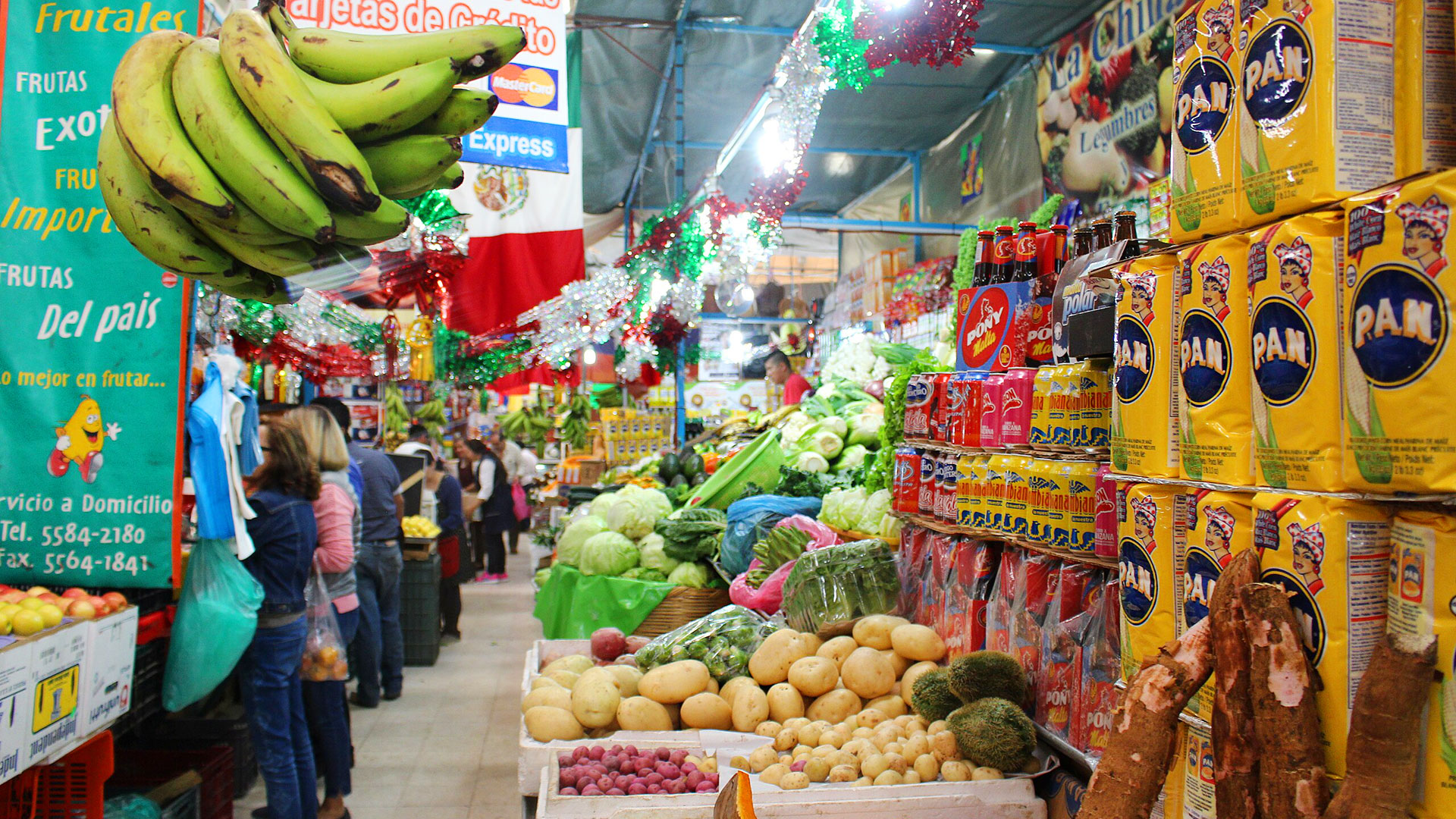
Morning: Flora and Frida in the south
Ride to the south of the city, where the packed urban core gives way to slower residential stretches, like the Coyoacán neighborhood, distinguished by its color-blocked colonial homes. Here, the Casa Azul, or Blue House, where Frida Kahlo grew up and later lived with her husband, the muralist Diego Rivera, has been turned into a museum. On display are some of the globally iconic artist’s most personal paintings, as well as many of her signature Tehuana dresses and household items, reflecting a sense of style whose influence, the museum makes clear, is still felt today. Tickets purchased online are required.
Viveros de Coyoacán, the neighborhood’s principal greenspace, is a short walk away. An overstuffed plant market in its northeast corner is an encyclopedia of local flora, including impressive cacti, some towering two stories tall. Bring your sketchbook – if Frida has so inspired you.
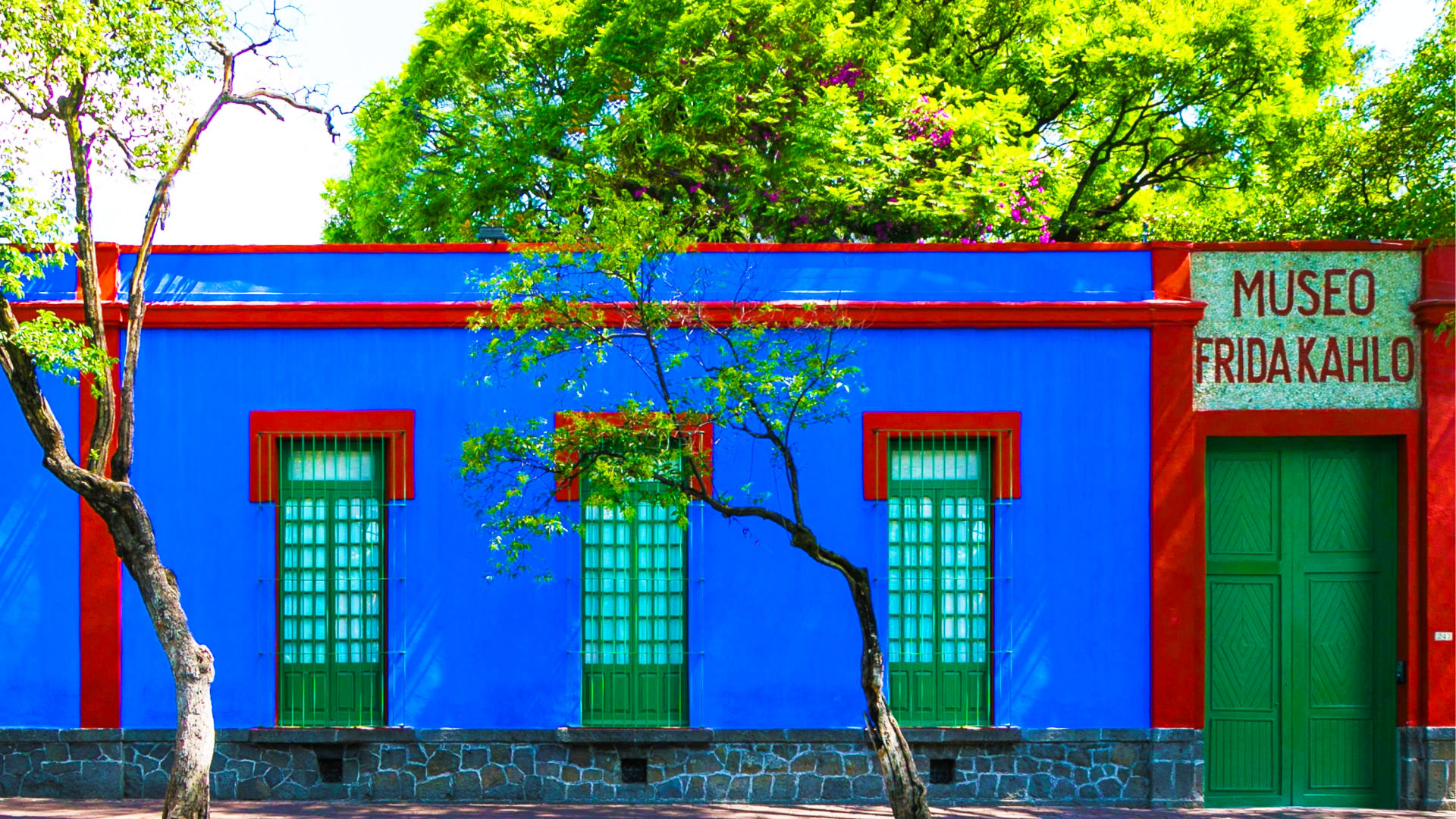
Lunch: One Michelin Star vegetables
Continue south towards the mountains that ring the city for lunch at Sud 777, recently awarded a Michelin Star. The venue is unlike any other in the city – a bi-level labyrinth of indoor and outdoor – and the food, as its mission, is completely original. Seeking to differentiate his cooking, Chef Edgar Núñez turned to what he was raised on by a vegetarian mother, and today, vegetables figure prominently into Sud’s tasting menu, like a “simple but spectacular spinach, sauteed in sherry and set in a pool of lush almond and garlic puree." Standout à la carte main dishes include red snapper al pastor and local turkey with "mole amarillito."
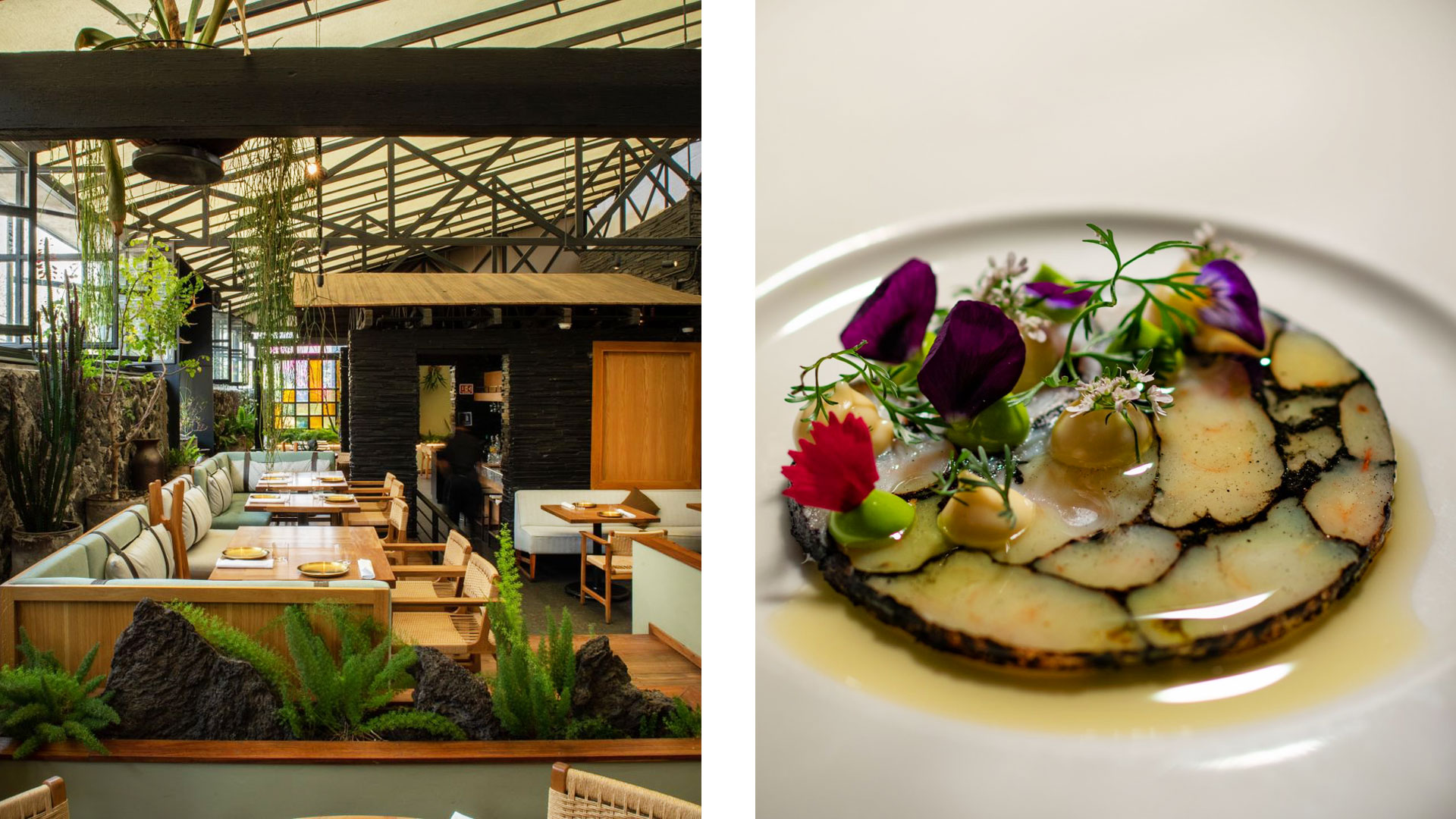
Afternoon: Volcanic architecture
The neighborhood of Pedregal, where you’ve just eaten lunch, was not long ago a lava field. Two spaces nearby that engage this history through architecture should be on your list. Luis Barragán, the Mexican Pritzker Prize winner, was first to develop the area in the 1940s, inspired to build gardens among the blanket of black rock. Casa Pedregal, available for tours by appointment, is one of the best examples of his Modernist works, noted for its airy rooms that interplay lights and long lines. The hulking Museo Anahuacalli, designed by Diego Rivera, is itself built from the igneous stone beneath it. Curator Karla Niño de Rivera thinks of it as a temple that transforms its visitors as they climb its steep levels. Inside are housed Rivera’s personal collection of pre-Hispanic antiquities and a number of early sketches for his murals with familiar themes of class struggle and industry.
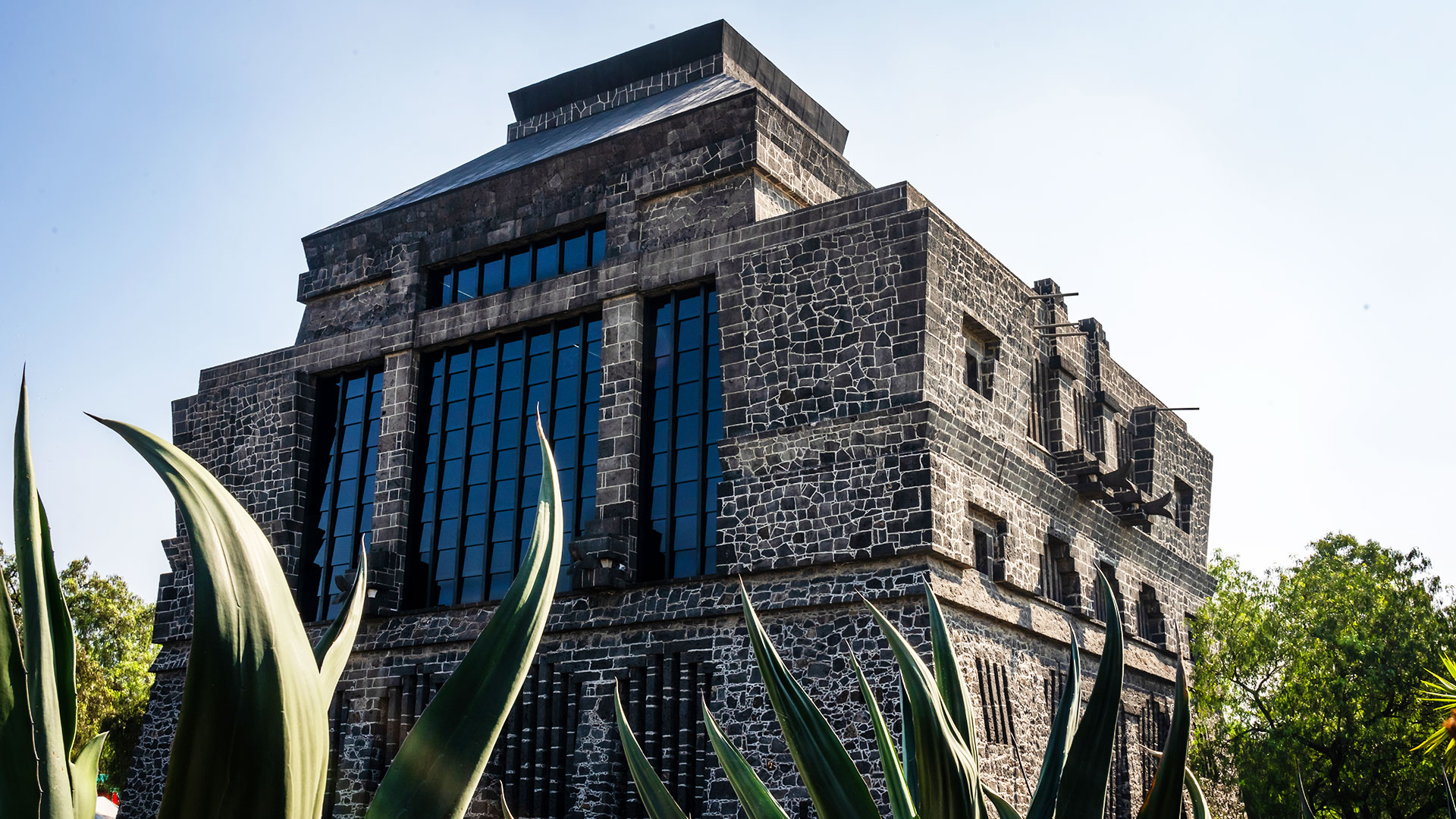
Evening: Dinner and a night out
Roma Norte, a popular neighborhood of well-worn stately buildings, has the best food scene in Mexico City, at least according to the Michelin Inspectors. From age-old taquerías, to seafood fixtures, to two exquisite Starred options, there are more than twice as many restaurants recommended in the city’s guide here than in any other neighborhood. Máximo is a good place to begin. A lively bistro with an “internationally influenced Mexican” tasting menu and à la carte choices, Máximo feels like a special occasion place. But look closer, and many diners are regulars, returning for no greater reason than the bread service, arriving with “roasted eggplant with a pleasant charcoal essence.” Or opt for Sarde, which through its amber-glow lighting and brick walls alone achieves hot spot status. The vibe is matched by the service and food: “Contemporary dishes are rooted in the freshest seasonally appropriate product possible from the Mexican coasts.”
For your evening entertainment, choose between two performances with impeccable showmanship, one at either end of an intellectual spectrum. The Ballet Folklórico de México, staged since 1959 at the magnificent golden-domed Palacio de Bellas Artes in the city’s historic center, provides a tour of the country through regional dances and costumes. Lucha libre, the outlandish masked Mexican wrestling, with matches at the Arena México, is just as acrobatic, with an albeit slightly more boisterous audience. Both are immensely enjoyable, with tickets for select nights available online.
Staying in Roma Norte: This is a neighborhood that's been represented all over our 2-Day itinerary, and for good reason: this smart, trendy neighborhood is among the most visited in the city. We're thrilled to recommend any of our six MICHELIN hotels in Roma Norte. For one, check out the Brick Hotel. Once owned by a Mexican president, the luxe little spa is a particular gem in the neighborhood, and the hotel's Belle Époque architecture has been updated with modern details, from the parquet floors to the Deco-styled full-length mirrors and floor-to-ceiling windows.

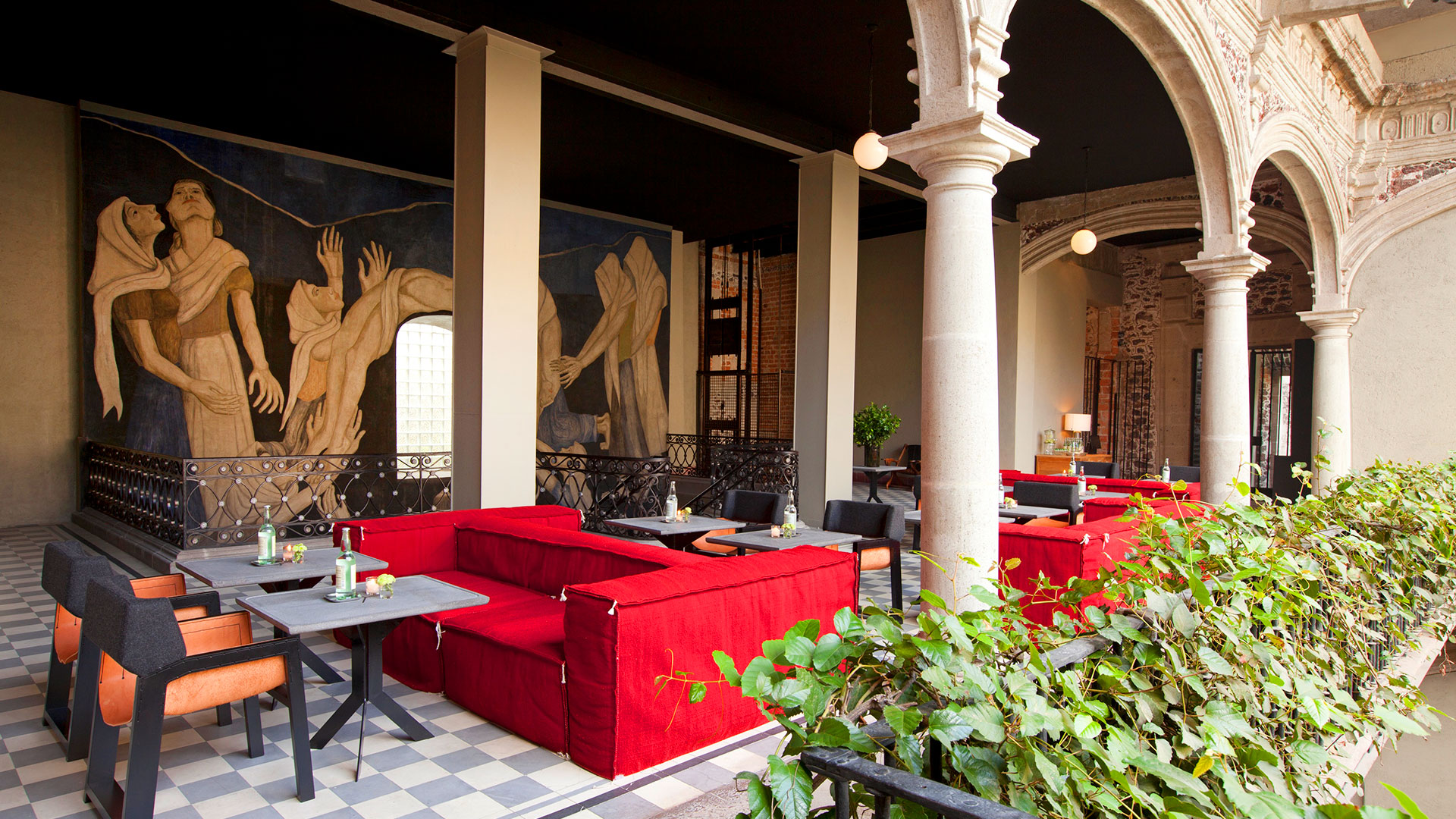
Address Book
Tomasa Condesa
C. Atlixco #74, Colonia Condesa, Cuauhtémoc, 06140 Ciudad de México, CDMX, Mexico
Tomasa Polanco
Av. Emilio Castelar 14, Polanco, Polanco Chapultepec, Miguel Hidalgo, 11550 Ciudad de México, CDMX, Mexico
Chapultepec Park
Bosque de Chapultepec I Secc, 11580 Mexico City, CDMX, Mexico
The National Anthropology Museum
Av. P.º de la Reforma s/n, Polanco, Bosque de Chapultepec I Secc, Miguel Hidalgo, 11560 Ciudad de México, CDMX, Mexico
Proyecto Rufina
Ámsterdam 133, Hipódromo, Cuauhtémoc, 06100 Ciudad de México, CDMX, Mexico
Mooni Art
Fernando Montes de Oca 43, Colonia Condesa, Cuauhtémoc, 06140 Ciudad de México, CDMX, Mexico
Fonart Condesa
Alfonso Reyes 30, Colonia Condesa, Cuauhtémoc, 06140 Cuauhtémoc, CDMX, Mexico
Mercado Medellín
Mercado Medellín #20, Campeche 101, 06760 Ciudad de México, CDMX, Mexico
Mercado Granada
Laguna Yuriria 27, Granada, Miguel Hidalgo, 11520 Ciudad de México, CDMX, Mexico
Mercado de la Merced
Circunvalación, La Merced, Zona Centro, Venustiano Carranza, 15100 Ciudad de México, CDMX, Mexico
Frida Kahlo Museum
Londres 247, Del Carmen, Coyoacán, 04100 Ciudad de México, CDMX, Mexico
Viveros de Coyoacán
Viveros de Coyoacán, Del Carmen, Coyoacán, 04100 Ciudad de México, CDMX, Mexico
Casa Pedregal
Av. de Las Fuentes 180, Jardines del Pedregal, Álvaro Obregón, 01900 Ciudad de México, CDMX, Mexico
Museo Anahuacalli
Museo 150, San Pablo Tepetlapa, Coyoacán, 04620 Ciudad de México, CDMX, Mexico







